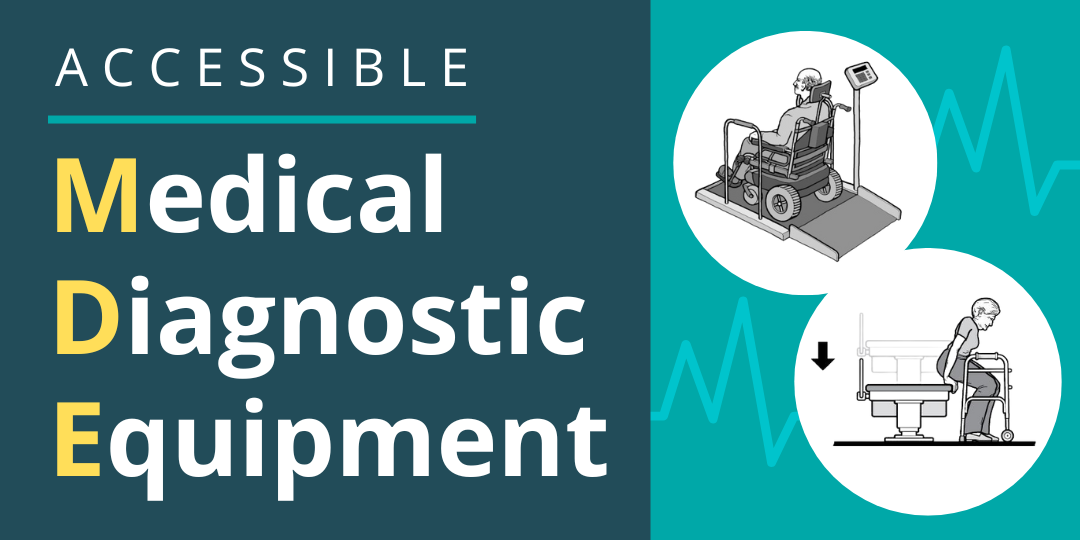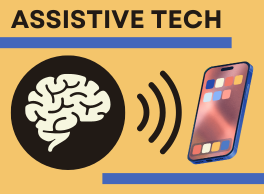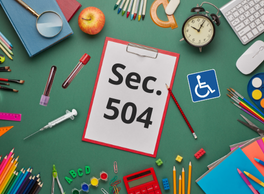

ARCHIVED: Access to Medical Care Facilities, Exam Rooms, and Long-Term Care Facilities
New Accessibility Self-Assessment for Arts and Culture Organizations
Empowering Minnesota’s Workforce: Leveraging ERAF for Inclusive Success

Two exciting updates were released in July and August to improve the accessibility of Medical Diagnostic Equipment (MDE).
The first update specified a new low transfer height of 17 inches for MDE when they are used in the supine, prone, side-lying, or seated position. This rule also removes the sunset provision in the U.S. Access Board’s 2017 accessibility standards for MDE that allowed a range of low transfer heights from 17 to 19 inches. The new rule will come into effect on September 23, 2024.
The second update added specific requirements to the Title II regulations of the ADA that will ensure MDE such as exam tables, mammography machines, weight scales, etc. are accessible to people with disabilities. The compliance deadlines for state and local government entities are as follows:

Inclusive Apprenticeships Needed in Fast Growing Clean Energy Field
This brief discusses the need for apprenticeship programs that include employees with disabilities in the clean energy sector. To learn more, read the brief and watch EARN’s recent webinar on Pathways for Hiring People with Disabilities into Clean Energy Jobs.

Assistive Technology: Patient Uses Thoughts to Control Devices
An American man with ALS has become the first patient in the world to use Apple Vision Pro via an implantable brain-computer interface (BCI). Despite not having the use of his hands, this technology allows him to play Solitaire, bring up screens to watch movies, and send text messages.

Expanding Affordable Housing for People with Disabilities
The U.S. Department of Housing and Urban Development (HUD) recently awarded $138.5 million in grants to state housing agencies, including those in Ohio, Wisconsin, Indiana, Minnesota and Michigan. The funding will be used to address accessibility needs in existing, new, or renovated multifamily developments and connect individuals with community-based support services.

Supporting Students with Disabilities in Degree Attainment
Students with disabilities make up 21% of all learners according to a 2024 higher education report from the U.S. Government Accountability Office. However, students with disabilities were less likely to graduate from college than their peers. This article shares what researchers found to be the most prevalent barriers to student success and which solutions are being implemented.

New Law Ensures Equitable Funding for All Special Education Students
Senate Bill 3606 was signed into law and took effect immediately on July 1. The bill equalizes the reimbursement rate received by public school districts for high-needs special education students, whether they are sent to private or public special education day schools.
Special Education Students Get Needed Services Under New Law
As of July 19, school districts will now be required by House Bill 4581 to provide resources and services for special education students 18 years of age or older that live outside the school district. This closes a gap in student residency rules so that students with disabilities who turn 18 before finishing the school year do not have services interrupted or denied unnecessarily.

Ivy Tech Seeking Students with Intellectual Disabilities to Enroll in Pilot Program
Ivy Tech Community College Fort Wayne is looking for five students to enroll in its new inclusive post-secondary education (IPSE) pilot program this fall. This program is called Success Through Resiliency and Valuable Education (STRIVE) and offers students with intellectual disabilities the opportunity to engage in inclusive post-secondary education, gain independence, and socialize with typical peers while earning work-ready credentials and skills.
Adult Day Center Transportation Issues Reported Due to FSSA Medicaid Transition
According to Adult Day Center workers, Medicaid stopped paying for transportation services to these centers back in July when the state transitioned to managed care, otherwise known as PathWays. This has led some adult care organizations to report that this could cause them to close their doors. The Family and Social Services Administration (FSSA) which oversees both the state’s Medicaid plan and Medicaid waiver services said their two programs have separate transportation processes for non-medical transit. Under the state plan, non-emergency medical transportation is reimbursed by transportation brokers while waiver services for non-medical transportation are billed to the managed care entity (MCE) by a provider.

Mackinac Island Asked to Allow Class 2 E-Bikes
Mackinac Island has had their no-motor tradition as far back as 1898. To preserve the no-motor tradition, Mackinac Island placed a ban on throttle assisted e-bikes, but they’re now facing backlash from e-bike users who say the ban discriminates against people with disabilities. The University of Michigan’s Civil Rights Litigation Initiative is asking Mackinac Island to lift the ban on Class 2, throttle-assisted e-bikes. This request comes 11 years after the American Civil Liberties Union (ACLU) won a case that allowed Class 1 pedal-assist e-bikes on the island.
Wayne State Adapts Physical Education Program for Students with Disabilities
Wayne State University has received a $1.25 million grant to prepare adapted physical education specialists to serve students with disabilities. The program is called Project SUPPORT and aims to address the critical shortage of special education instructors in Michigan and across the country.

Disability Waiver Changes Raise Concerns
Advocates fear that Minnesotans with disabilities will be forced to leave their homes and move into group homes or assisted living facilities under a proposed state overhaul of the disability waiver programs. The Minnesota Department of Human Services planned to debut the reimagined waiver system in January 2026, however, they are now eyeing spring 2027 due to delays in the assessment system update as well as due to community questions and concerns.
Workforce Development Services for Young Minnesotans with Disabilities
The Minnesota Department of Employment and Economic Development (DEED) has received a federal grant to prepare low-income youth and young adults with disabilities ages 16-24 to complete post-secondary education and successfully transition into the workforce. Minnesota is one of four states to receive this grant.

Admissions Suspended at Mental and Behavioral Health Treatment Facility
In May, civil rights advocate Disability Rights Ohio (DRO) released the results of a 16-month investigation into Youth Intensive Services (YIS), a residential treatment facility that provides mental and behavioral health services to children ages 12 to 18. DRO found numerous instances of children leaving the facility without permission and being exposed to dangerous conditions while off-grounds, inappropriate and painful restraint techniques and physical abuse by staff. A month after DRO’s report was made public, the Ohio Department of Mental Health and Addiction Services (OhioMHAS) suspended admissions to YIS. OhioMHAS is now requiring YIS to take corrective action to address all concerns before it will lift the suspension.
Blue Envelope Program Seeks to Improve Traffic Stops for Drivers with Disabilities
Drivers with disabilities in Mahoning County can now fill out blue envelopes to provide police during traffic stops with information about their medical conditions or accommodations like the need for additional time to answer questions or a need for clear, simple language. On the inside of the envelope, they can also store important documents such as insurance information and their car registration. The program is designed to de-escalate traffic stops and help law enforcement recognize and respond to the needs of persons with disabilities like anxiety, autism and dementia.

Project SEARCH Empowers Individuals with Disabilities for Employment Success
Project SEARCH is a collaborative effort among state vocational rehabilitation agencies, area schools, local employers, and long-term care organizations to help people with disabilities acquire skills that lead to employment. Through internships with local business partners, students explore careers and learn valuable employability skills through three separate internship rotations and classroom curriculum.
Veterans Exposed to Toxic Substances Eligible for New Care Options
Veterans throughout northeast Wisconsin can now get care they may not have had access to in the past. The PACT Act provides more opportunities for veterans exposed to toxic substances while serving in the military to receive screenings and other medical care. According to the article, this Act opens up care options for more than 100,000 veterans in Wisconsin.
Important Note: News from third-parties may be subject to change or require a subscription to view. The Great Lakes ADA Center is not responsible for content restrictions or changes made by third-parties.

New Resources to Protect Students with Sickle Cell, Epilepsy, and Cancer
The U.S. Department of Education’s Office for Civil Rights (OCR) recently released three new resources with information for students, parents, families, and schools addressing the civil rights of students with sickle cell disease, epilepsy, and cancer.

Using Federal Funding for LGBTQI+ Youth Mental Health Services
The Substance Abuse and Mental Health Services Administration (SAMHSA) recently released a guide for states and communities on how they can use federal funds to support mental health services for LGBTQI+ people.

2024 National Disability Employment Awareness Month (NDEAM) Poster
Hot off the presses! The Office of Disability Employment Policy (ODEP) has released their 2024 NDEAM poster for download. Printed posters will be coming soon. There is also a customizable version of the poster for entities to make it their own! ODEP offers Spanish versions of both NDEAM posters.

Toolkit: Creating Environments Where Everyone Matters
What is “Mattering”? Mattering is a psychological need that helps protect against social isolation and loneliness. This NIDILRR-funded toolkit from the Temple University Collaborative covers the significance of “mattering” in mental health as well as helpful strategies to create communities where everyone matters.

Answer: Landlords and business or non-profit tenants covered under Title III of the ADA both have legal obligations to remove physical barriers. However, both parties are allowed to decide by lease or other contractual method who will be responsible for making changes to a particular portion of the facility. For example, landlords may retain the right to make physical modifications to the parking lot, building exterior, and common areas while the tenant may only be responsible for making physical modifications inside their leased space.
In addition, alterations made by a tenant to their leased space would not trigger the landlord to make alterations to areas outside of this space.
However, both parties remain legally responsible for full compliance with the ADA, regardless of leasing or other contractual agreements.
Resource(s):
Learn more by visiting our ADA Frequently Asked Questions.

EEOC v. Garda CL Southeast, Inc. (GardaWorld)
GardaWorld will pay $37,500 to settle a disability lawsuit alleging the company refused to accommodate a Deaf employee for years despite his requests for an American Sign Language (ASL) interpreter. Additionally, a three-year decree requires GardaWorld to provide qualified interpreters, in-person or through video remote interpreting, to applicants and employees who are deaf or hard of hearing. GardaWorld will also provide training on Deaf culture; designate a human resource professional to address complaints; and report on any complaints to the EEOC.
According to a lawsuit, federal contractor Didlake who provides janitorial and maintenance services failed to provide American Sign Language (ASL) interpreters for deaf and hard-of-hearing employees and terminated employees who requested medical leave that didn’t qualify for the Family and Medical Leave Act (FMLA). To settle the suit, Didlake will pay more than $1 million and update policies relating to leave and reasonable accommodations, provide training to all employees on the ADA.
Wal-Mart Stores East, LP will pay $75,000 and furnish other relief to settle a disability discrimination lawsuit alleging they refused to allow a disabled employee to work unless she provided a full medical release saying she could work without restrictions. The case also states they retaliated against the employee for filing an internal complaint when they fired her nine days later. The two-year decree prohibits Walmart from requiring employees to be “100% healed” or “fully recovered” before returning to work and requires Walmart to consider transfers from the distribution center to a retail store as a potential reasonable accommodation.
A surgical sales coordinator diagnosed with breast cancer requested to telework for approximately 3 months while she underwent chemotherapy treatments and provided medical documentation supporting her request. According to the lawsuit, Mia Aesthetics offered only an ineffective accommodation of a part-time front desk position, which would have decreased the surgical sales coordinator’s earnings and subjected her to increased person-to-person contact. Mia Aesthetics then terminated the surgical sales coordinator’s employment when she did not accept this ineffective accommodation even though she could have performed the essential functions of her sales coordinator role from home. Shortly after firing the surgical sales coordinator, Mia Aesthetics replaced her with a fully remote surgical sales coordinator.
According to this lawsuit, an applicant called Wilson Logistics seeking work as a truck driver. He possessed a commercial driver’s license, had relevant experience and had been granted an exemption from regulatory hearing requirements by the U.S. Department of Transportation. When the applicant spoke to Wilson through a video relay service, the company’s representative told him he could not bring somebody in who does not read, write, and speak English. He further told him the company does not hire individuals who communicate through sign language.

This Justice Department settlement agreement resolved the department’s investigation into race and disability discrimination in Wichita Public Schools, Kansas’ largest school district. Under the settlement, the district will revise practices to prevent discrimination in discipline and referrals of students to law enforcement, end the use of seclusion, reform its restraint practices, and improve services to students with disabilities in certain schools and classrooms.
The Town of Glen Alpine has remedied several ADA violations by improving physical access to ensure that individuals with disabilities have equal access to its Town Hall building. The modifications include accessible parking, ADA-compliant ramps, and added Braille signage to the conference room where the town meetings are held, among other modifications.
The United States Attorney’s Office for the Eastern District of Michigan has reached a settlement agreement with Wayne County concerning inmates who have disabilities. Complaints alleged that Wayne County routinely failed to provide crucial services to inmates who have disabilities, including access to appropriate prescription medication, mental health services, and medical equipment. Additionally, some complaints alleged a failure to conduct medical and mental health assessments. The settlement agreement requires Wayne County to implement a series of reforms at the Wayne County Jail.

Department of Education’s Office for Civil Rights (OCR) v. Colonial School District
The Town of Glen Alpine has remedied several ADA violations by improving physical access to ensure that individuals with disabilities have equal access to its Town Hall building. The modifications include accessible parking, ADA-compliant ramps, and added Braille signage to the conference room where the town meetings are held, among other modifications.

A settlement with the DelMonte Hotel Group has been reached to resolve allegations that one of its hotels discriminated against an individual with a disability. The complainant, a wheelchair user, alleges that while an accessible room was reserved, no clean, accessible rooms were available when she arrived. The complainant further alleges that the room she was provided had no fixed seat in the bathtub, forcing her to shower sitting on the floor of the bathtub. DelMonte will complete all necessary accessibility changes within 18 months, pay $7,500 to the complainant, and pay a civil penalty to the United States.
A settlement agreement has been reached with the Crowne Plaza Hotel to resolve allegations that after reserving an accessible room, when an individual with a disability attempted to check-in, the hotel provided a room that lacked toilet handrails and did not have an accessible shower. According to the complaint, after the complainant explained their needs, the hotel provided a second room that lacked toilet handrails, had broken toilet seat hinges, and had an inaccessible shower. The agreement requires the hotel to renovate its facilities by increasing the number of accessible rooms and eliminating barriers in existing rooms.
Agreements with a local gymnasium and landlord have been reached to settle allegations that a Smyrna CrossFit gymnasium failed to remove architectural barriers to accessibility for individuals with disabilities patronizing the gymnasium. As part of the settlements, the parties have agreed to cease using the building as a place of public accommodation and will pay penalties.
DOJ v. Good Times Restaurants, Inc.
An agreement with Good Times Restaurants, Inc. has been reached to resolve allegations that it denied service to a group of children who use wheelchairs and their parents, claiming that the group was a fire hazard. Good Times has agreed to pay eight families a sum of $34,000 each, and a civil penalty of $80,000, for a total settlement payment of $352,000. In addition to monetary relief under the settlement, the agreement also requires Good Times to adopt new ADA compliance measures, including new policies at its restaurants and ADA compliance training for its employees.

